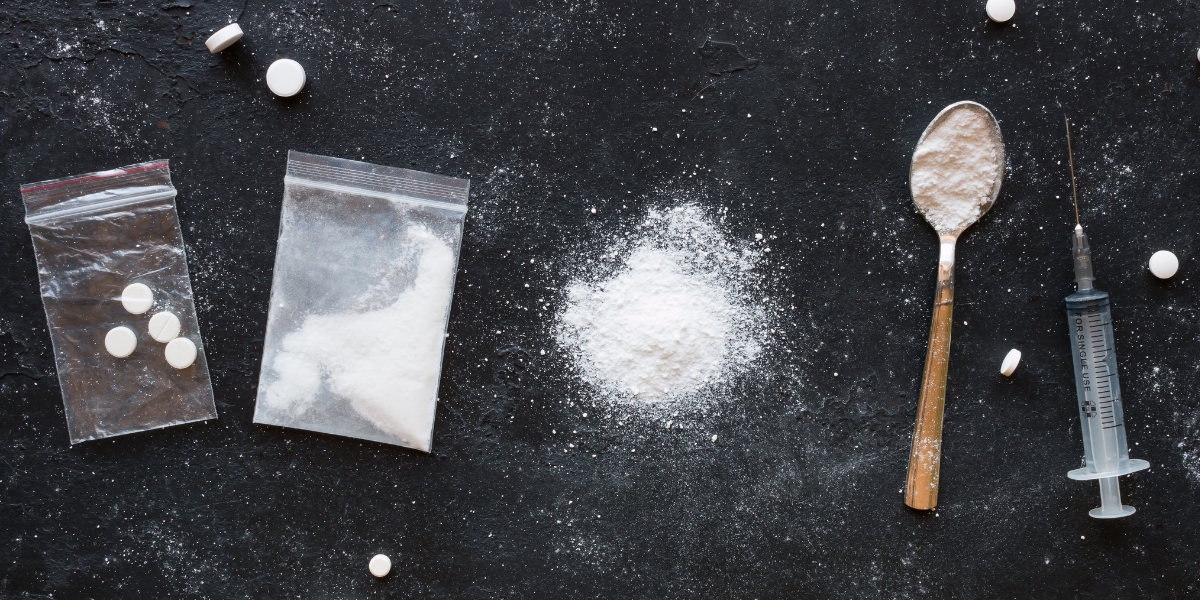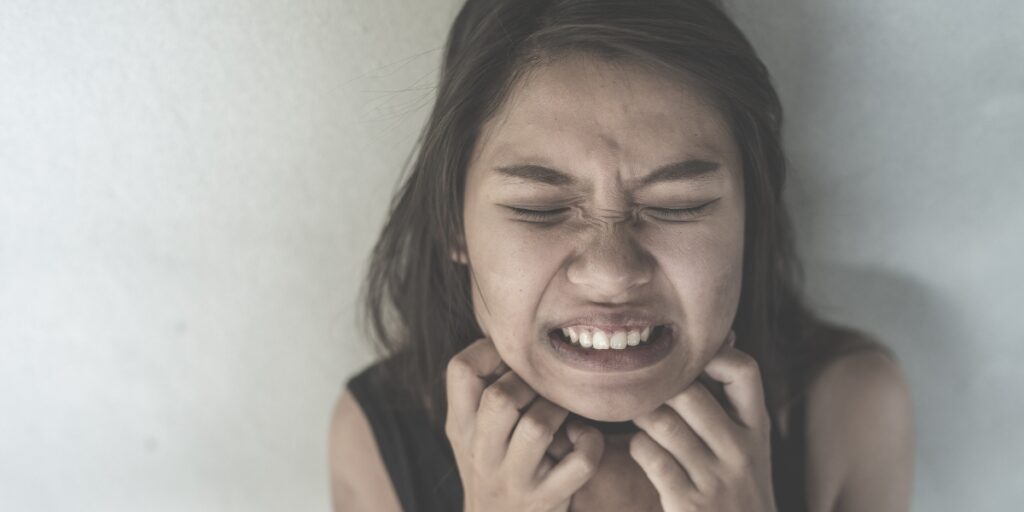PCP Effects and Symptoms of Use

The effects and symptoms of PCP make it popular on the illegal drug market but unsafe for medical use for which it was initially developed. In medical settings, PCP’s hallucinogenic and manic side effects outweighed the possible benefits.
Like many dangerous drugs, PCP was originally developed for use in medical settings and made its way to the illegal drug market. The same hallucinogenic and manic side effects that made it unsafe for clinical use make it popular among people who abuse drugs.
Many people consider PCP, or angel dust, a drug of the past; however, emergency rooms and treatment centers are seeing a surprising increase in PCP-related injuries and people seeking help for their substance use disorders.
From 2005 to 2011, PCP-related emergency department visits increased by 400%. Some of these were direct results of the effects of PCP, and some were injuries related to the violent and delusional behavior it causes.
Treating the effects of PCP abuse and the physical and psychological dependence it causes often requires an in-depth, professional treatment plan before the harm becomes irreversible.
What Is PCP?
PCP is an abbreviation for phencyclidine, a mind-altering, illegal drug. PCP is a central nervous system depressant. However, PCP is different from depressants such as alcohol or opioids because it causes extreme stimulation and breaks with reality.
Initially developed in the 1950s for surgical anesthesia, PCP was discontinued by the mid-1960s because patients were experiencing extreme side effects, including hallucinations, delusions, and violent agitation.
In 1967 pharmaceutical companies reintroduced PCP as an animal sedative; it was widely out of use by 1978. In the United States, PCP is a schedule II controlled substance. Schedule II means a drug has a high potential for abuse and physical and psychological dependence.
PCP Street Names
Veterinarians briefly used PCP as a sedative, so many slang names reference animals or PCP’s different physical forms.
Street names for PCP include:
- Angel dust
- Peace pill
- Rocket fuel
- Horse tranquilizer (this is also slang for Ketamine)
- Hog
- Embalming fluid
- Sherm
- Monkey dust
- Wet
PCP Forms
PCP comes as a liquid, pills, crystals, capsules, or loose powder on the streets. Because it comes in so many different forms, people can choose their preferred way of ingesting PCP— smoking, snorting, swallowing, or injecting. PCP is commonly laced with other drugs causing unique interactions and side effects.

What Is PCP Made Of?
Except for a minimal amount produced in labs for research, PCP is made illegally in underground labs. All forms of PCP have tested positive for different environmental contaminates from unsterile production environments, and dealers often add coloring to disguise it from law enforcement.
The United States Department of Justice (DOJ) calls PCP production the “bucket method” because all ingredients are mixed in a large bucket or trash can and then portioned for distribution. The ingredients to make PCP are cheap and easily obtainable but are also volatile and highly flammable. Additionally, dealers will sometimes spray liquid PCP on tobacco or dried plant materials to make it easier to smoke.
Some of the most common ingredients found in PCP include:
- Piperidine, an organic base for different drugs
- Bromobenzene, a solvent common in motor oil
- Ether, a highly flammable liquid common in starter fluids
- Hydrochloric acid, a corrosive chemical common in industrial cleaning solutions
- Potassium cyanide, a chemical used for fumigating and committing suicide
Signs and Symptoms of PCP Use
The signs of PCP abuse can present soon after someone starts using or after repeated use. PCP affects people physically and mentally, so it is essential to look for changes in both areas if you are worried your loved one is struggling with PCP addiction.
Signs and symptoms of PCP use include:
- Staring blankly for a long time
- Staying very still for long periods
- Jerking eye movements
- Watching something that isn’t there
- Drooling
- Sweating
- Unusual strength
- No reaction to pain
- Erratic behavior
- Violent outbursts
- Self-harm
- Putting themselves in dangerous situations
- Physically reacting to hallucinations
- Inability to stop using PCP
- Withdrawal symptoms if they stop using PCP
Many PCP-related emergency room visits and deaths resulted from the mind-altering delusions of superstrength and invincibility, causing users to test the theory only to end up injured or dead.
PCP Effects
The effects of PCP vary based on the person taking it, the method of ingestion, the amount consumed, if any other drugs are in the system or mixed with the PCP, and the strength of the doses. The intense and long-lasting effects make PCP an addictive and dangerous drug.
PCP typically kicks in within 5 to 40 minutes and can last anywhere from 4 to 24 hours or longer. PCP effects are incredibly different for those who are experiencing them and those who are observing them.
Short-Term Effects
The short-term effects of PCP stop after the drug is out of the system, and the body restores chemical balance.
Short-term effects of PCP include:
- Numbness
- Euphoria
- Dizziness
- Drowsiness
- Disorientation
- Slurred or rapid speech
- Out-of-character behaviors and thoughts
- Raise blood pressure
- Increased or irregular heartbeat
- Total stillness
- Staring at one focal point
- Delusions about physical capabilities and power
- Changes in how time is perceived
- Violent thoughts and outbursts
- Panic
- Anxiety
- Seizures
- Taking dangerous risks
Long-Term Effects
Long-term effects of PCP can continue even after PCP clears from the system. Some people experience unexpected flashbacks for years after they stop using PCP. PCP can also worsen existing mental health problems and cause permanent personality changes.
Long-term effects of PCP include:
- Paranoia
- Isolation
- Speech impairment
- Drastic weight loss
- An impending sense of doom
- Memory loss and difficulties
- Suicidal thoughts
- Violent visions and fantasies
- Permanent injuries from acting on delusions
- Intermittent hallucinations or intrusive thoughts
- Heart damage
- Nerve damage
- Fatigue

PCP Withdrawal Symptoms
In the same way that PCP dominates the brain, it makes its absence felt just as strongly, sometimes causing seizures, coma, and death.
PCP can stay in the system for as long as 15 days, making it hard to tell the effects apart from PCP withdrawal symptoms. Withdrawal can be upsetting, intense, and life-threatening.
PCP withdrawal symptoms include:
- Intense cravings
- Vivid hallucinations
- Fatigue
- Long periods of sleep
- Fever
- Restlessness
- Agitation and outbursts
- Muscle stiffness and twitching
- Seizures
- Coma
- Cardiac arrest
- Suicidal thoughts or attempts
Withdrawing from PCP can be physically and mentally intense, dangerous, and overwhelming. The safest way to approach PCP withdrawal is with professional help that can resolve any problems quickly and safely.
PCP Abuse and Addiction Treatment
At Northridge Addiction Treatment Center, we specialize in PCP treatment, addressing the whole person, not just the addiction, helping heal the physical and mental effects of PCP abuse.
Our onsite medical detox surrounds you with nurturing support and 24-hour medical care to get you through withdrawal safely and in a comfortable setting.
Using a combination of treatments, therapies, individual therapy, and group counseling, we address the roots of your addiction and empower you with the knowledge and skills to start a new life free from substance abuse.
Our admissions experts look forward to speaking with you and helping you take the first steps to a healthy life in recovery. Reach out to us today.
Find Meaningful Recovery
Our caring and compassionate specialists are eager to help you comfortably navigate this journey to recovery. Our individualized treatment plan, programs, and therapies may be a perfect match for you or your loved one. Let us assist you in living the happy life you deserve. It starts with a phone call.




